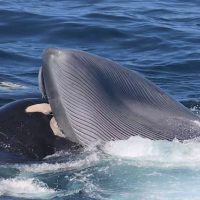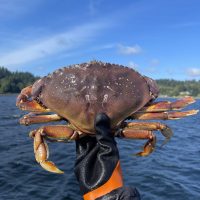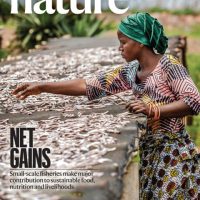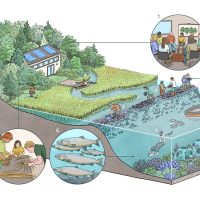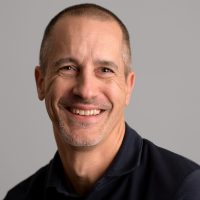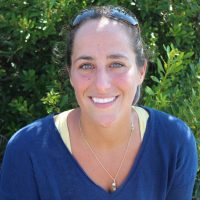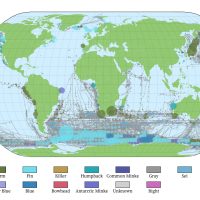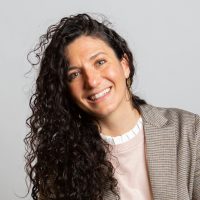Filter Results
Celebrating Women in Science
10 years ago, the UN declared 11 February as the International Day of Women and Girls in Science. On this 10th anniversary at the University of Washington, we’re celebrating our women in aquatic and marine science: women who are leaders in their fields, women who are aspiring to be the next generation of fisheries scientists and marine biologists, women who are uplifting and supporting other women in science.
Read moreGhostly flight species of baleen whales avoid attracting killer whales by singing too low to be heard
Killer whales are the only natural predator of baleen whales. More solitary than toothed whales, baleen whales face predatory attacks from killer whales, especially mother and calf pairs. When attacked, some species fight back, while others choose flight. But whale species also produce loud underwater songs…what stops killer whales from homing in on their calls and attacking them? New acoustic research by Trevor Branch sheds light on why.
Read moreA Crab Network is Connecting Communities and Generating Crucial Data for Salish Sea Fisheries
A collaborative network of agency and tribal scientists and resource managers, university faculty and students, and community volunteers are diligently working together to unlock the secrets of the Dungeness crab’s life cycle in the Salish Sea. The Pacific Northwest Crab Research Group (PCRG) is leading this unprecedented effort, generating vital data and fostering robust relationships to ensure the long-term sustainability of this ecologically, economically and culturally-important species.
Read moreSmall-scale fisheries essential to global nutrition, featured on cover of Nature
Small-scale fisheries play a significant but overlooked role in global fisheries production and are key to addressing hunger and malnutrition while supporting livelihoods around the world, according to research featured in Nature in Jan. 2025. The study was published by an international team of scientists, including Professor Chris Anderson from the UW SAFS.
Read moreBeyond despair: How can ecosystem restoration enhance human wellbeing?
Ecosystem restoration has historically had a very ecological focus. However, while teaching a special interdisciplinary class during her time at Duke University, SAFS Assistant Professor, Carter Smith, took a slightly different view: how can ecosystem restoration be used to directly improve human wellbeing?
Read moreMark Scheuerell named as ASLO Sustaining Fellow
Mark Scheuerell, SAFS Professor, has been named as an ASLO 2024 Sustaining Fellow, part of a cohort recognized for their sustained excellence in their contributions to ASLO and the aquatic sciences. ASLO is the Association for the Sciences of Limnology and Oceanography.
Read moreJulian Olden selected to serve on The Nature Conservancy’s inaugural External Science Advisory Board
Julian Olden, a Professor at the UW School of Aquatic and Fishery Sciences (SAFS), has been chosen as one of 10 scientists to serve on the inaugural External Science Advisory Board (ESAB) for The Nature Conservancy (TNC).
Read moreWelcome Carter Smith, coastal ecologist and SAFS newest faculty member
On 16 September 2024, the newest faculty member will join SAFS, Assistant Professor Carter Smith. Carter is an interdisciplinary coastal ecologist whose interests lie at the intersection of multiple disciplines including community ecology, conservation and restoration science, and coupled human natural systems research.
Read moreWhaleVis turns more than a century of whaling data into an interactive map
A team at UW, including Trevor Branch from SAFS and Zoe Rand from QERM, have created an online interactive map called WhaleVis, which lets whale researchers visualize the IWC’s data on global whale catches and whaling routes. From this, researchers can estimate the animals’ spatial distribution and the effort whalers put into hunts.
Read moreWelcoming new faculty, Amy Van Cise
In September 2022, SAFS welcomed Amy Van Cise, a new assistant professor. Amy’s expertise focuses on the evolutionary ecology of marine mammals, which she studies using integrative approaches, including genomics, acoustics, and environmental DNA.
With a diverse career starting off with bachelor’s degrees in Marine Biology and Journalism, Amy’s previous studies, jobs, and research have taken her from New Hampshire and Peru to the Antarctic and Hawai‘i, and now to Washington.

